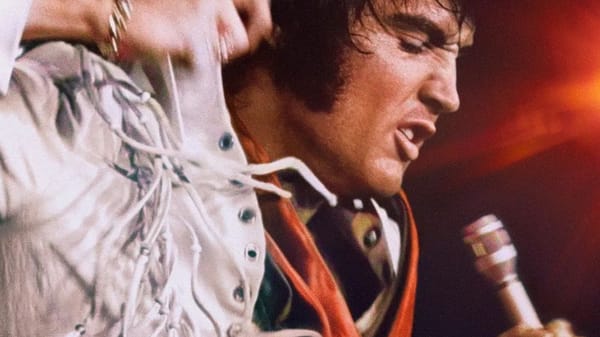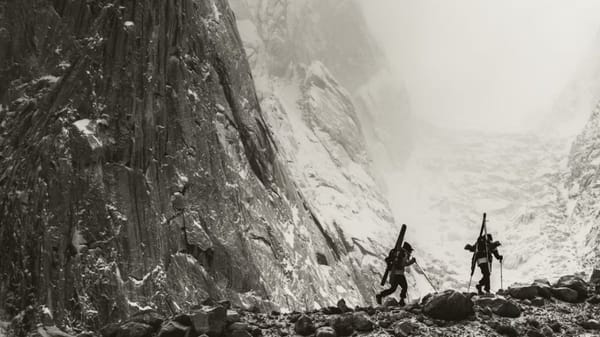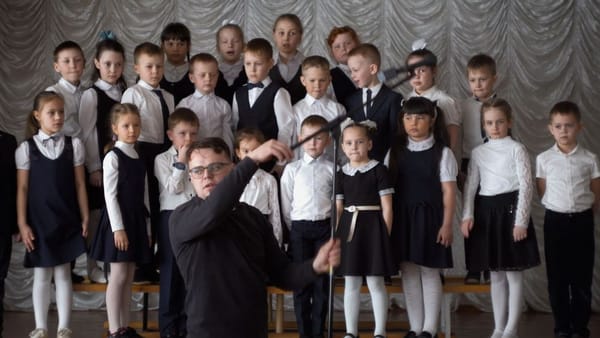Sydney Film Festival – Chain Reactions (dir. Alexandre O. Philippe)
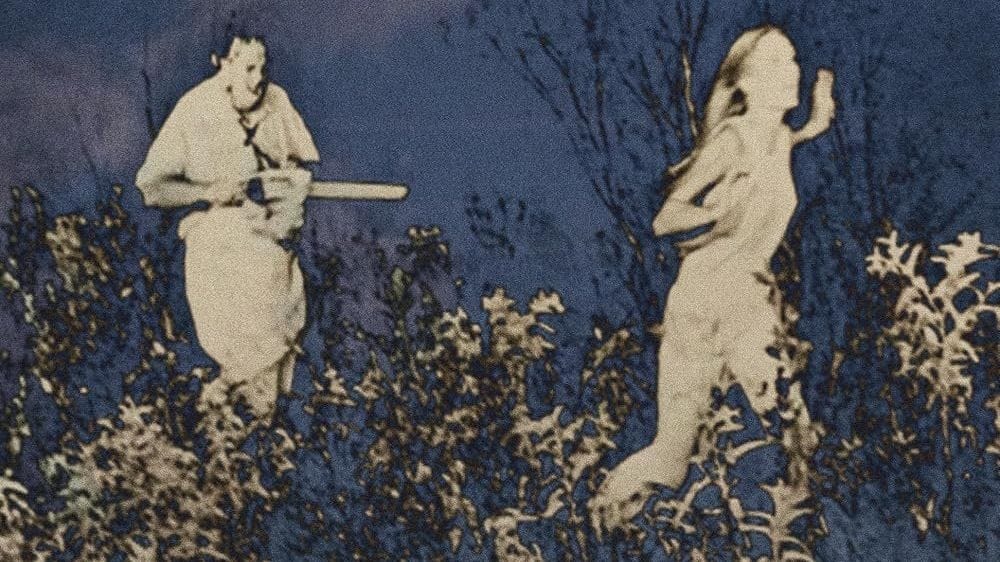
We don’t necessarily need another documentary about The Texas Chain Saw Massacre. Between features and home entertainment productions, general horror docs plus cast and crew biographies, Tobe Hooper’s horror masterpiece has been well and truly covered over its 50 years. Or at least that’s what it feels like—much like the illusion of blood and gore throughout Hooper’s film, maybe I am just imagining things. Although, if we’re being perfectly honest, if any film warrants persistent evaluations and re-evaluations it is probably this one. So, hey, that’s okay.
Thankfully then, Director Alexandre O. Philippe finds a smart way around simply retelling us what has been told to us before. As he has done with other classic horror films (although perhaps randomly, my favourite of his works remains The Taking about Monument Valley and the western genre), Philippe has found an interesting angle into the subject. It’s also probably his best film yet. Assembling five notable people to discuss The Texas Chain Saw Massacre across their own individual chapters, Chain Reactions does as its title suggests and shifts from one reaction to the next like a spark moving down the line. Patton Oswalt, Takashi Miike, Alexandra Heller-Nicholas, Stephen King and Karyn Kusama all ultimately come to the same conclusion—the movie is a masterpiece! But how they get there is singular to each participant.
Instead of the stories we have heard before, we get inversions. Rather than hearing once again about the oppressive heat turning everyone into walking, talking stinking bags of rotten meat, we instead get film historian Alexandra Heller-Nicholas discussing how we as viewers experience that palpable heat and how growing up in the Australian bush came with its own sticky sun-fuelled horrors both on screen with Picnic at Hanging Rock, Wake in Fright and more. Or in real life, too—a very funny parental prank at the titular Hanging Rock gives good personal insight into Heller-Nicholas whether you know her through her horror writing and documentary appearances of if you know her in real life (which, admittedly, I do). Instead of another story about mobsters and their money being a creative controller on set, we have assessments of Hooper as an artist making statements about the past, present and future of the United States. Instead of getting into direct discussions about why Daniel Pearl’s cinematography works the way that it does, we get canny references to Terrence Malick’s Days of Heaven that spotlights its strengths while underlining the effect that it has on the viewer and other filmmakers.
Chain Reactions does as its title suggests and shifts from one reaction to the next like a spark moving down the line. Patton Oswalt, Takashi Miike, Alexandra Heller-Nicholas, Stephen King and Karyn Kusama all ultimately come to the same conclusion—the movie is a masterpiece! But how they get there is singular to each participant.
Chain Reactions is probably the only one of these Chain Saw documentaries where you will find references to Old Hollywood classics Gone with the Wind and The Quiet Man; j-horrors House and Ju-on: The Grudge; Stan Brakhage experimentations like Mothlight; Bambi; Andrei Tarkovski’s Ivan’s Childhood; Gus Van Sant’s Elephant; Earth vs the Flying Saucers; No Country for Old Men; plus Charlie Chaplin and Buster Keaton. Stephen King even manages a dig at Kubrick, which will probably amuse people no matter where they sit on The Shining.
Within all of these clips (and more; nice nod to Terry Bourke’s Night of Fear, which preceded Chain Saw but gets none of the attention) is plenty of footage from The Texas Chain Saw Massacre itself and its assorted behind-the-scenes compilations. Most of the audience for Chain Reactions will have probably seen it all before (I can’t keep track of where they've been, but I’m guessing it's recycled) but the context within which it is used feels relatively fresh. Philippe and editor David Lawrence (previously of Lynch/Oz and Leap of Faith: William Friedkin on The Exorcist) make smart use of formats here, too. Repeated footage is shown either in its more pristine digital form, VHS video tape, vinegared 16mm and 35mm film prints and television broadcasts, allowing for it to never quite get tiring the way it otherwise may have. All the subjects have great things to say, but a film that is visually repetitive would have undercut it severely. This use of mixed media not only works visually, but underscores some of the themes its talking heads discuss and tap into of this Massacre being such a malleable film across history. It’s terrifying no matter how you see it!
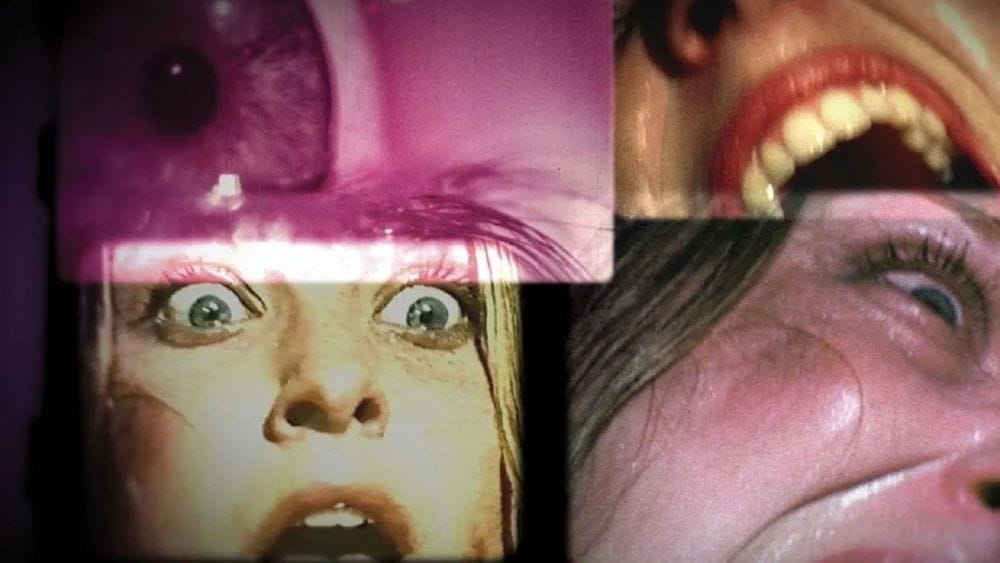
Its five subjects do all give good talking head, too. Philippe’s choices are just ever so slightly left of expected, which is great. I’m not quite sure how Patton Oswalt got on his radar beyond a small bit in his stand-up about Texas, but he’s an entertaining opening act. I also don't know how he wrangled Takashi Miike, but horror fans will really appreciate his contributions including a rather fabulous Sliding Doors-esque original story. Alexandra Heller-Nicholas, erudite and hyper-specific as ever, takes us from Miike's Japan to Australia and makes great acknowledgement of how far and wide Texas Chain Saw travelled—physically, albeit delayed in Australia due to censorship, as well as in the psyche of its viewers. Stephen King maybe has the least unique point of view, but who’s going to argue with his inclusion? It also gives an excuse to include a sequence from Sleepwalkers, so thank you for that. And like she did in Philippe’s Lynch/Oz, Karyn Kusama sweeps in with gusto at its end with some of the documentary's strongest ideas. She and Heller-Nicholas are also particularly observant to the attitudes of masculinity and the patriarchy within Hooper's film. Being unafraid to broach subjects that others may deem woke shouldn’t be seen as that much of a radical act, but I appreciate the filmmaker for keeping them in there. Politics is so at the heart of The Texas Chain Saw Massacre, so it’s fitting this doc travels into this particular part of it. There's probably a whole extra film in that subject, but let's not give anybody ideas just yet.
Kusama has a rather brilliant final line that I won’t quote here, but which really does put an answer to why there is a place for Chain Reactions today despite all that’s come before it. I found this doc entertaining, educational and with an angle on Massacre that feels fresh. It makes for the ideal double feature companion to Hooper’s film for those interested beyond the mechanics of how it was made. I will leave you with my favourite line, however. One line from Takeshi Miike: “Violence isn’t the goal, it’s the result.” Looking out the window, at the television, your phone or listening to the news shows how prophetic it all really was.
If you would like to support documentary and non-fiction film criticism, please consider donating by clicking the above link. Any help allows me to continue to do this, supports independent writing that is free of Artificial Intelligence, and is done purely for the love of it.

